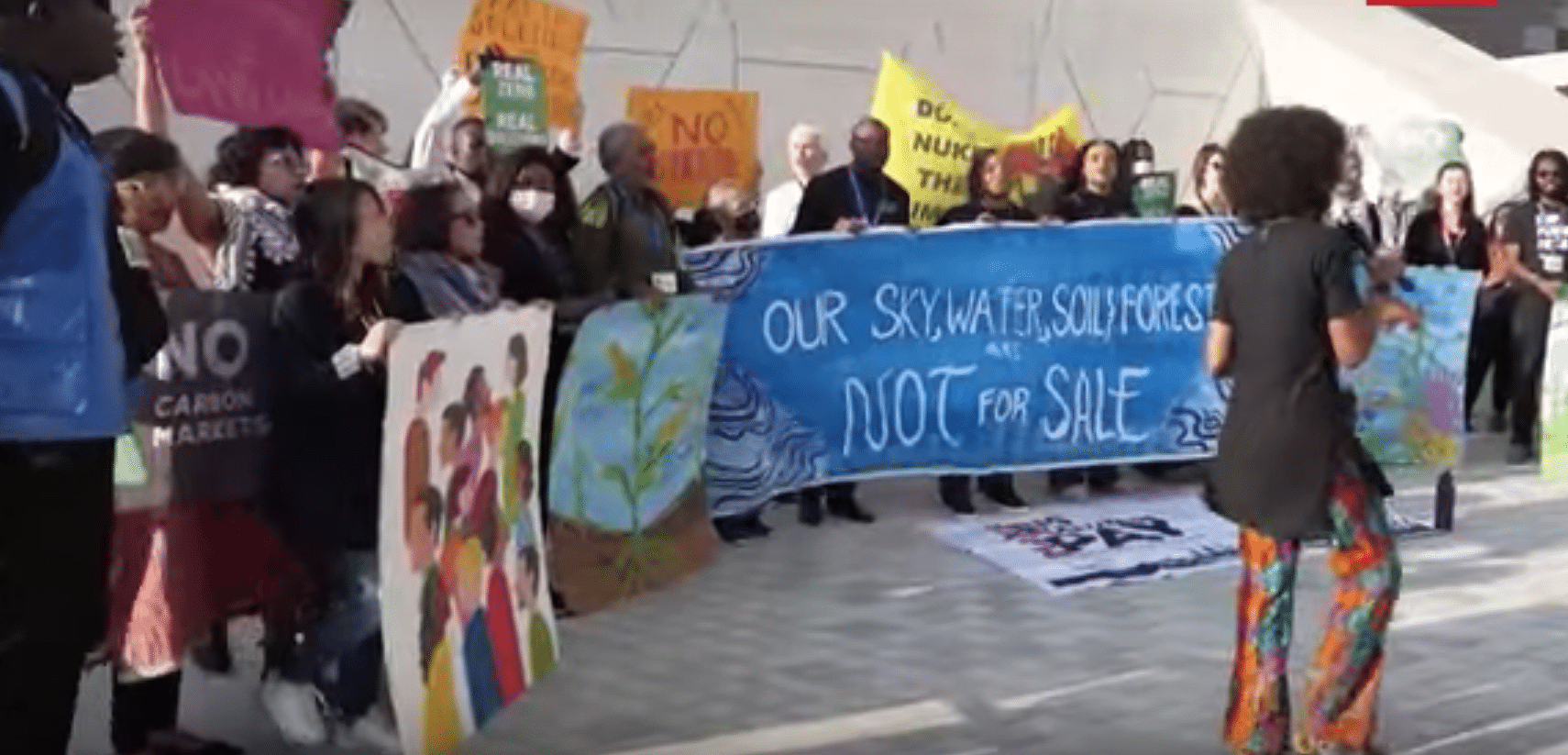More than at any other prior COP, geoengineering has featured prominently at COP28. There were more than 40 side events on marine geoengineering, especially marine carbon dioxide removal techniques like enhanced ocean alkalinity. These technologies are a dangerous distraction from phasing out fossil fuels and pose a huge risk to ocean ecosystems. In October, over 100 countries announced their intention to regulate and restrict the use of these technologies because of “the potential for deleterious effects that are widespread, long-lasting or severe”.
Other forms of carbon dioxide removal (CDR) were also prominently featured at COP28 with 32 events on different forms of carbon removal, including carbon capture and sequestration. Even more alarming, five side events featured solar geoengineering, making it clear that the UNFCCC is a space where pro-solar geoengineering actors are lobbying. In total there were over 80 pro-geoengineering side events at COP 28.
Will Article 6 set the stage for carbon markets and geoengineering?
Carbon markets are a key entry point for geoengineering lobbying and Article 6 of the Paris Agreement outlines principles for how countries can pursue voluntary cooperation to meet their climate targets. Many have interpreted this to mean that Article 6.2 and 6.4 will set the terms of carbon markets and geoengineers have seen Article 6 as a vehicle for legitimizing and advancing the use of carbon removals in carbon markets. Carbon markets offer the ultimate way to monetize green investments in geoengineering start-ups.
Opposition to the imposition of geoengineering, carbon offsets and carbon markets was strong at COP 28. We’re sharing a round-up of groups, countries and individuals raising concerns about geoengineering at COP 28.
At the launch of negotiations, Bolivia pushed back and called for a moratorium on carbon markets in Articles 6.2 and 6.4. Read more about this in IEN’s update from midway through COP.
Countries committed to upholding transparency, human rights, and climate ambition successfully prevented other countries from rushing to bring carbon markets into Articles 6.2 and 6.4 with virtually no restrictions.
This COP was taken over by more corporate lobbyists than ever before. Demand Climate Justice led an action demanding to kick big polluters out of COP 28 calling on negotiators to focus on ending fossil fuels and focus on real solutions. Watch the video from Associated Press here.
Civil society organizations including members of the HOME campaign, DCJ, Plataforma Latinoamericana y del Caribe por la justicia, Women and Gender Constituency, Indigenous Environmental Network and ETC Group hosted a side event called Article 6 on the Ground: Real Solutions Instead of Dangerous Distractions. Watch a recording of the livestream here.
Members of the HOME Alliance like Corporate Accountability and Indigenous Environmental network took a strong stand against US climate hypocrisy, Panganga Pungowiyi said, “the United States is built on a legacy of colonialism, white supremacy, patriarchy and extractive capitalism. Each year at the UNFCCC summits, we observe the United States fighting to continue that legacy.”
With fossil fuel lobbyists and industry interests dominating COP 28, there was little room left for real solutions and real commitments to climate action. Nonetheless, civil society opposition to geoengineering is growing and with Article 6 left undecided, there is time to ensure that Article 6 does not legitimize dangerous geoengineering distractions.
To get regular updates from Geoengineering Monitor sign up to receive our newsletter here!




